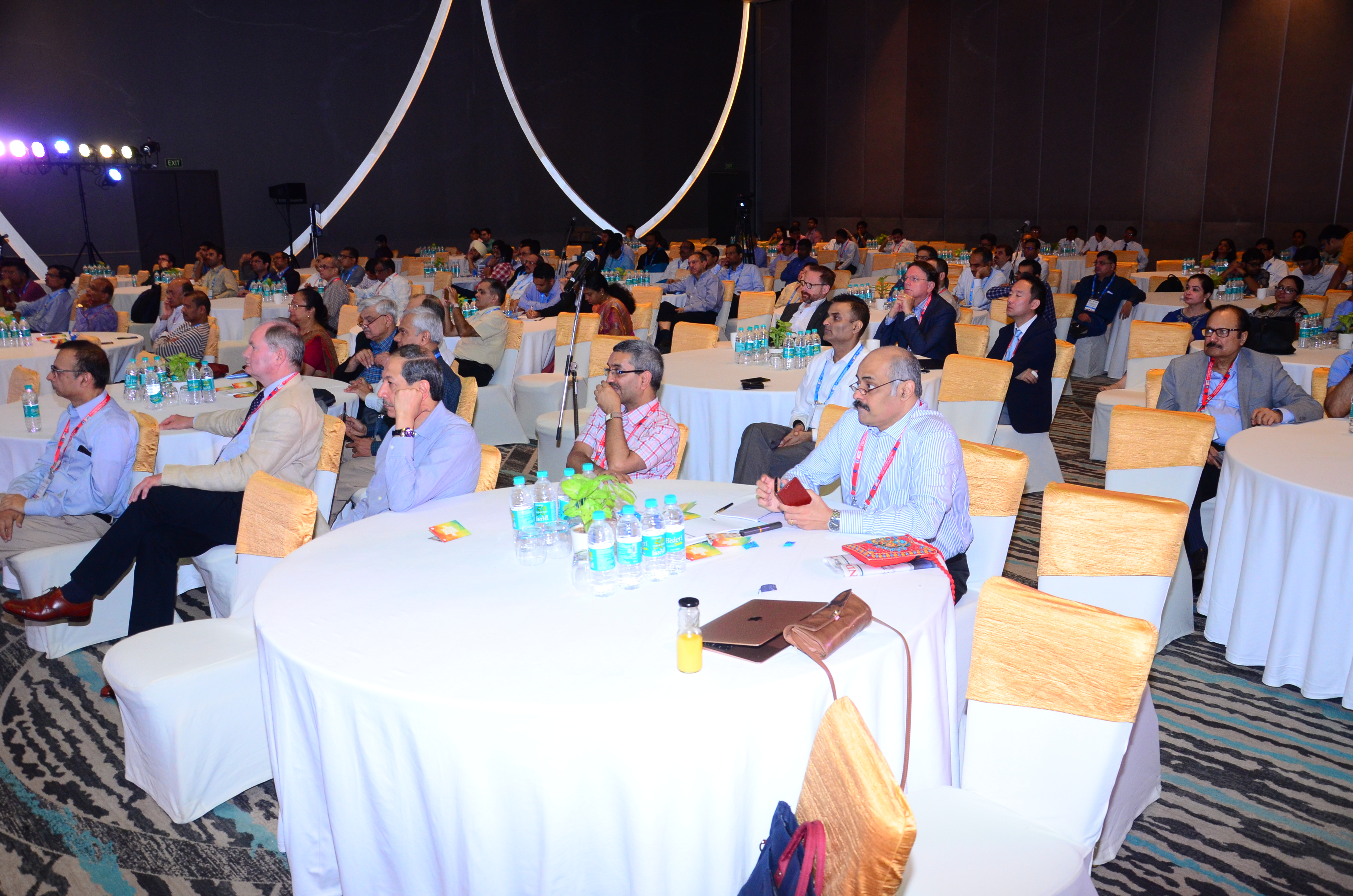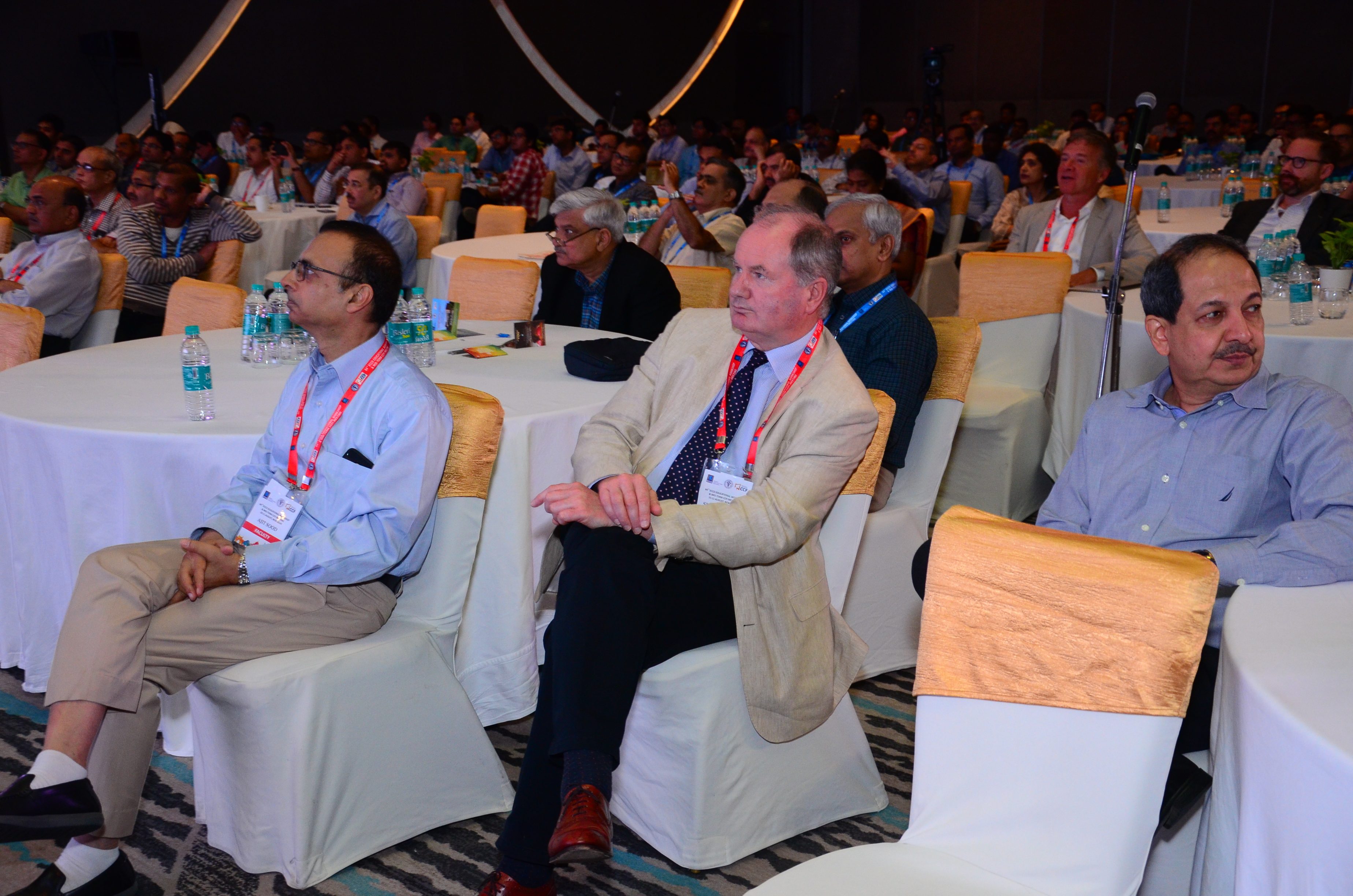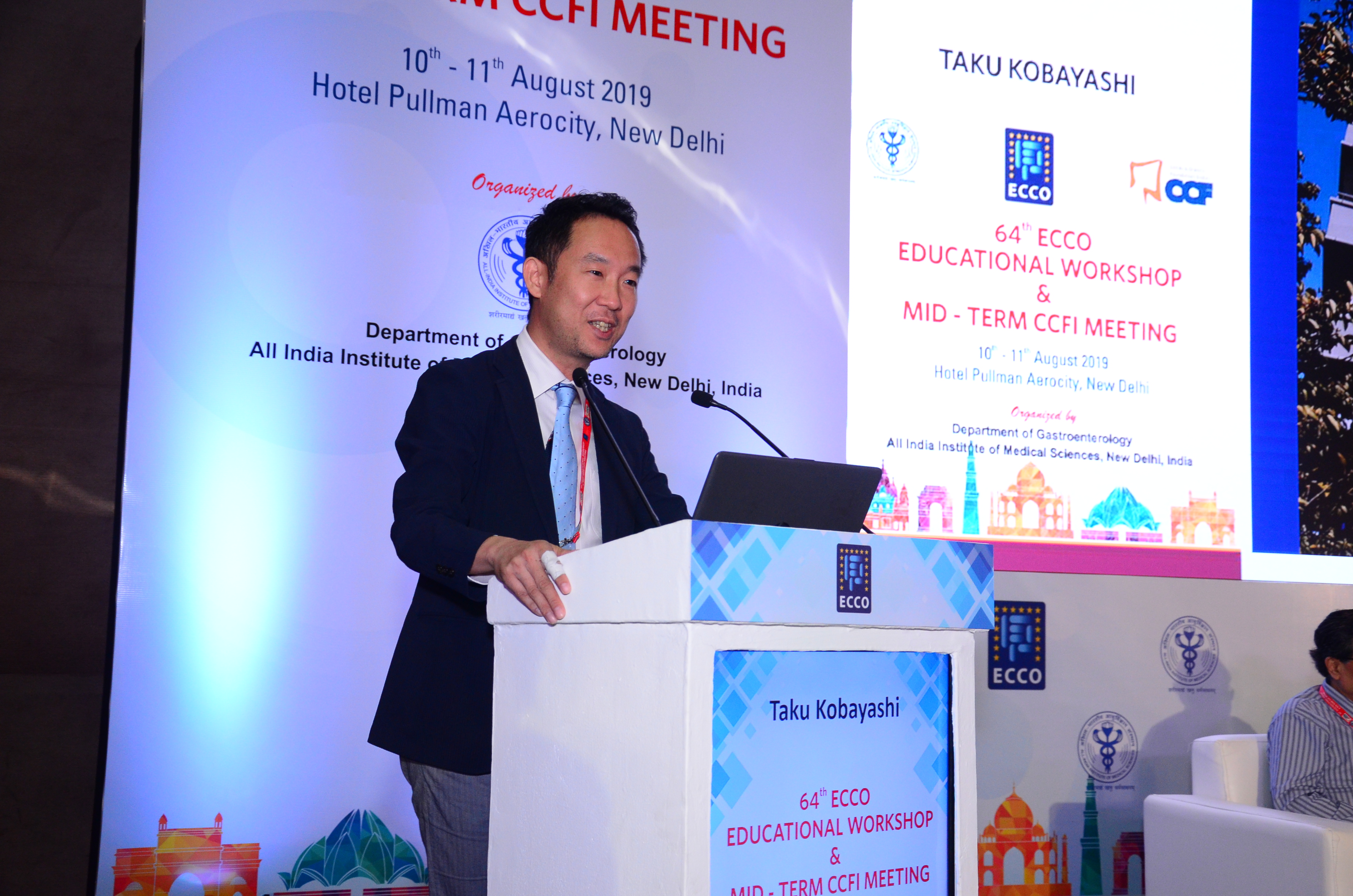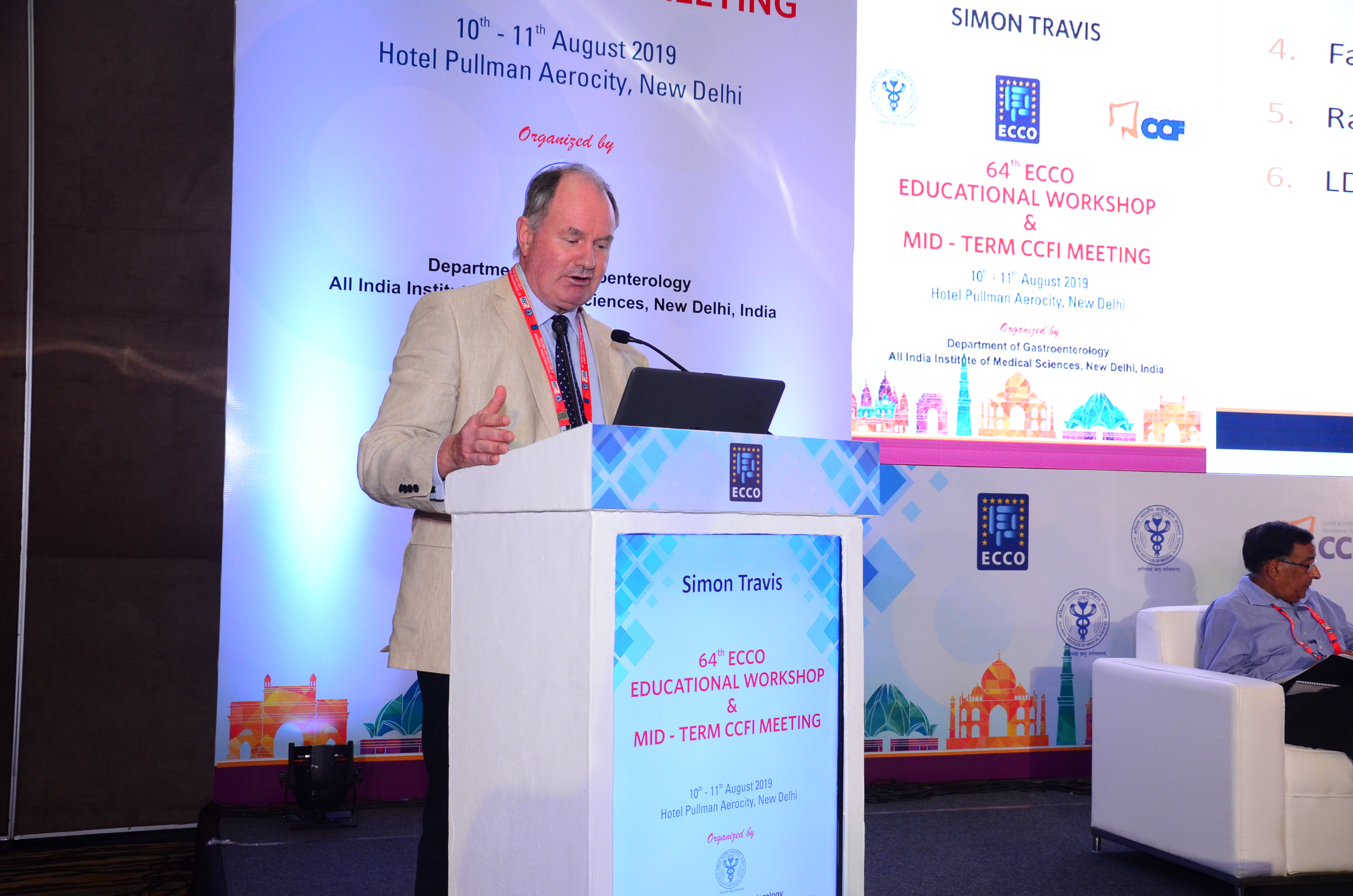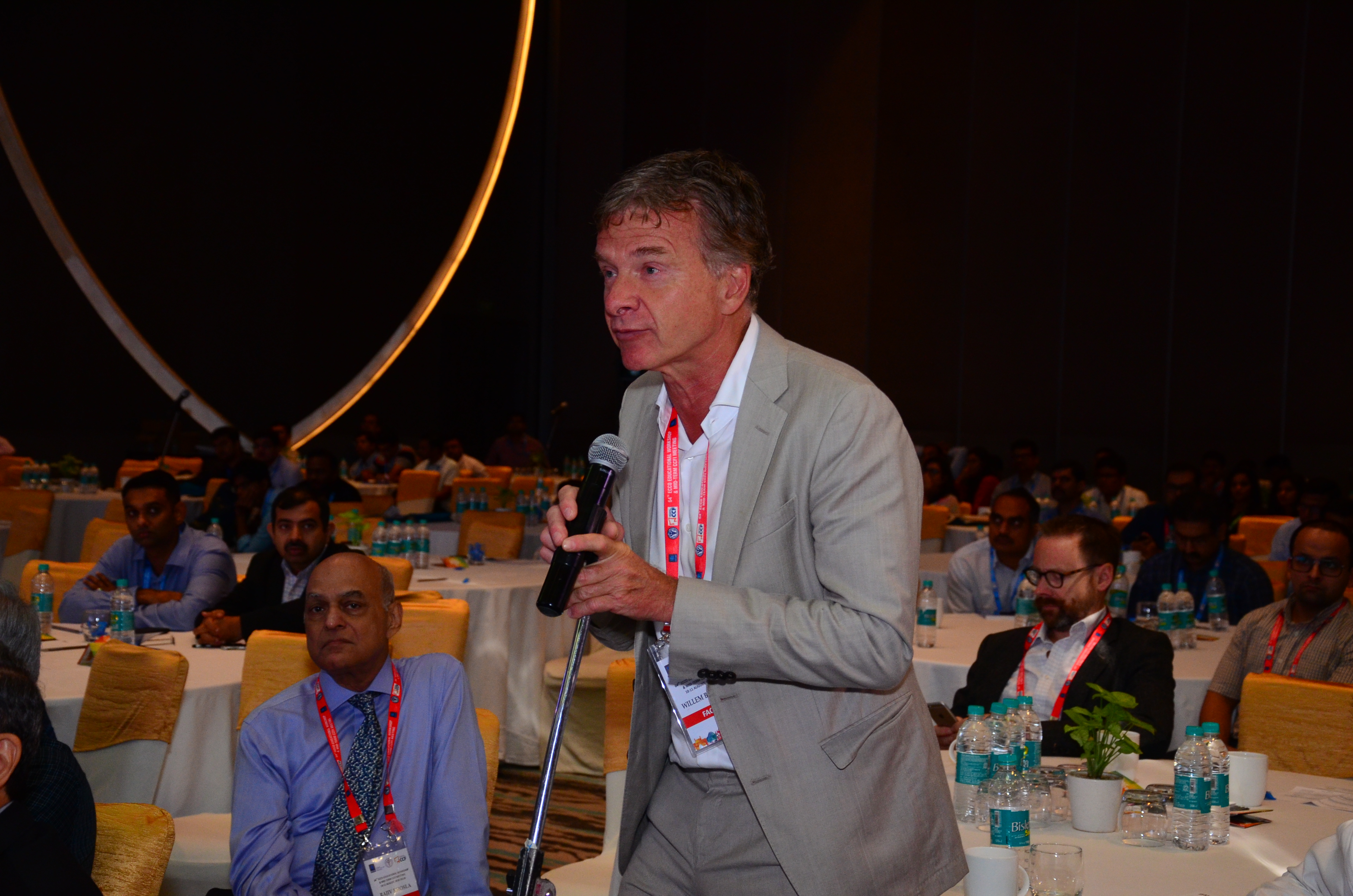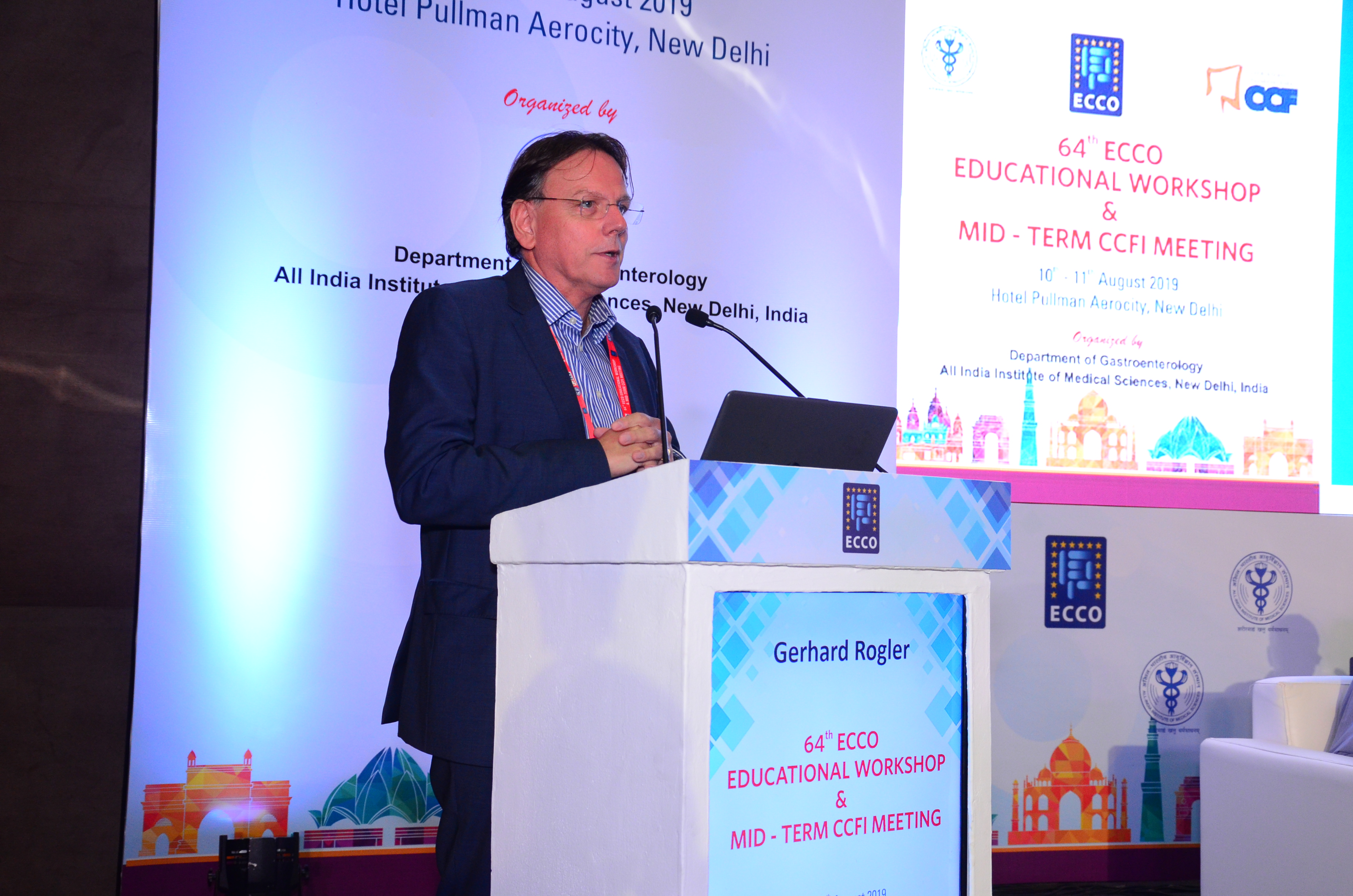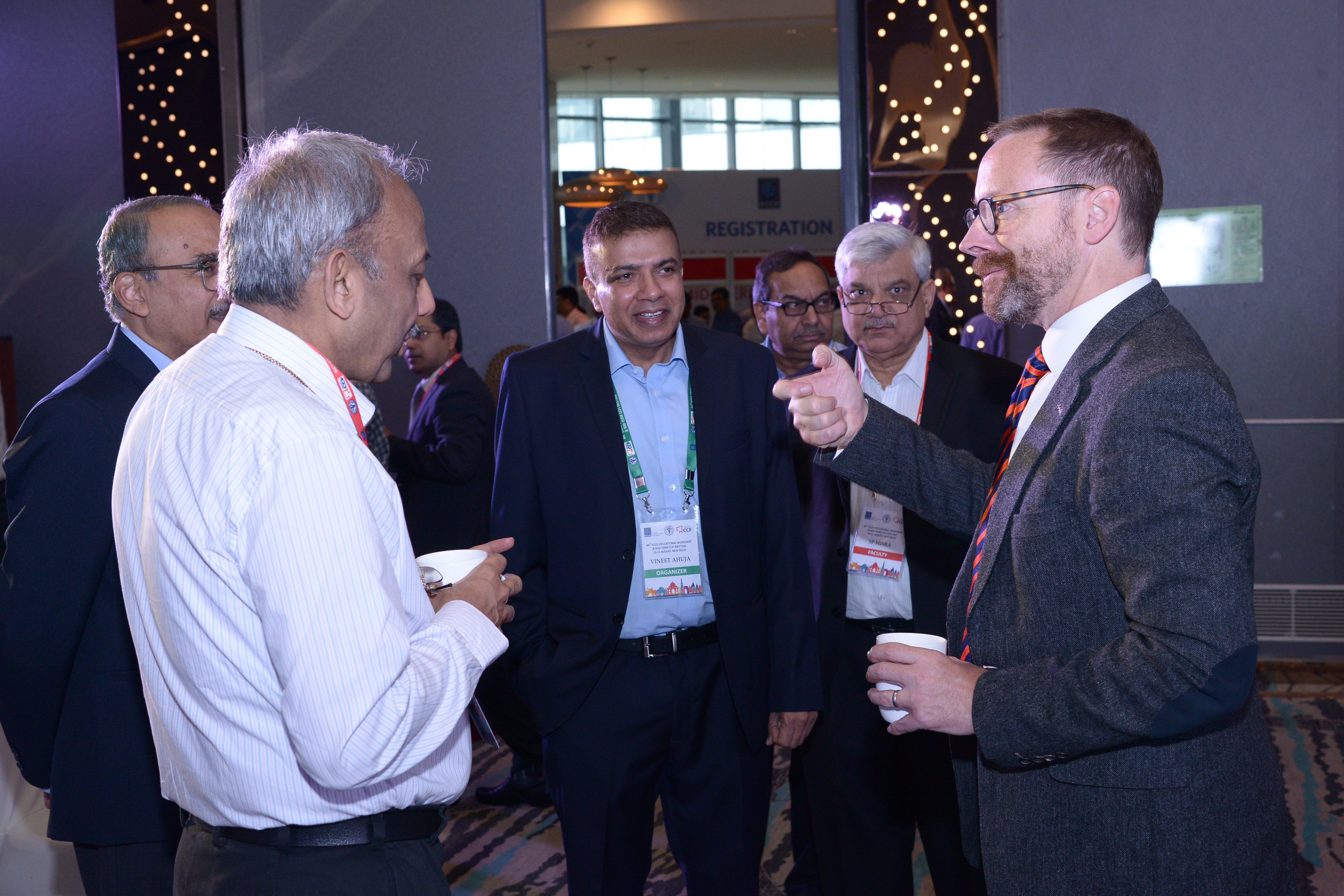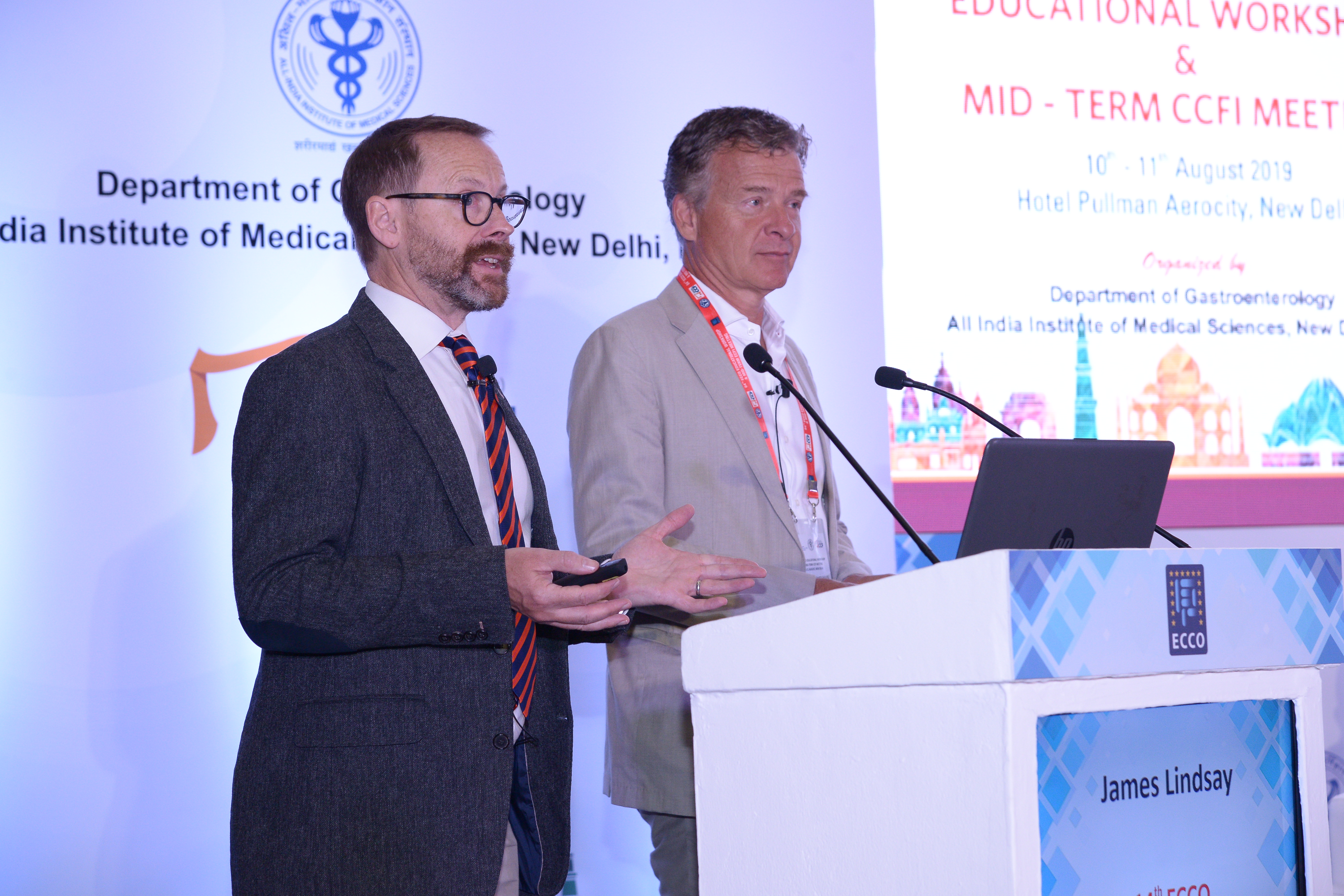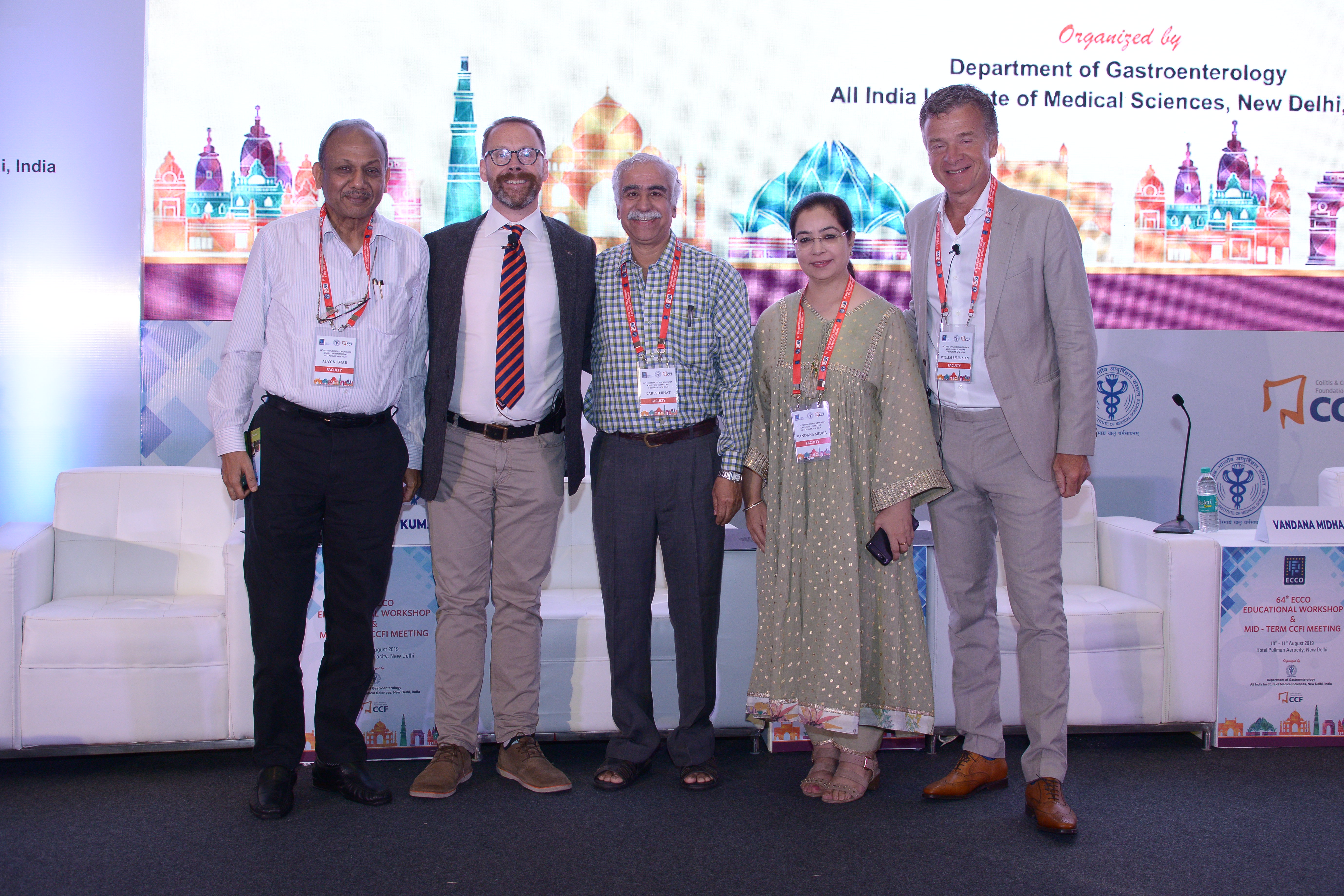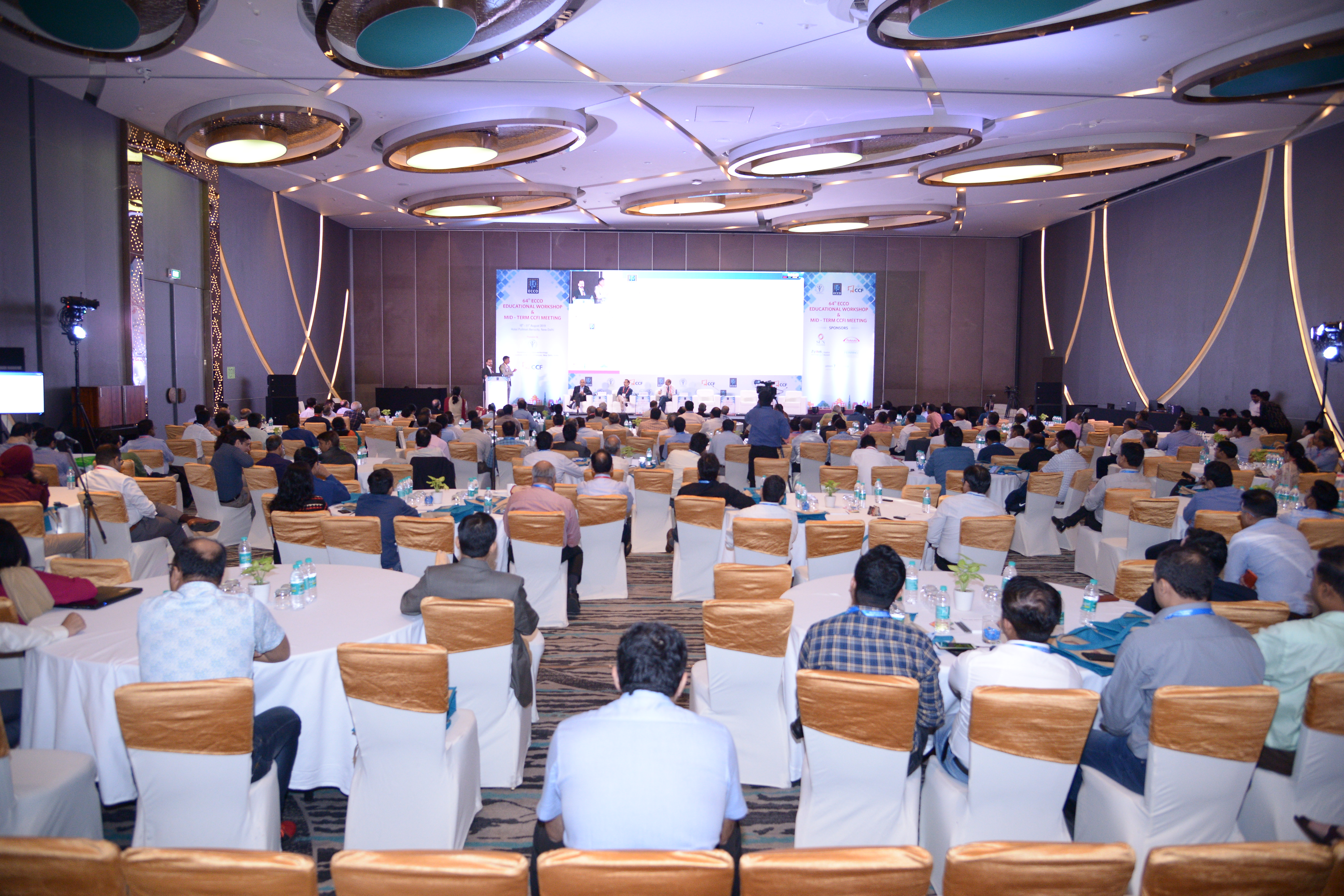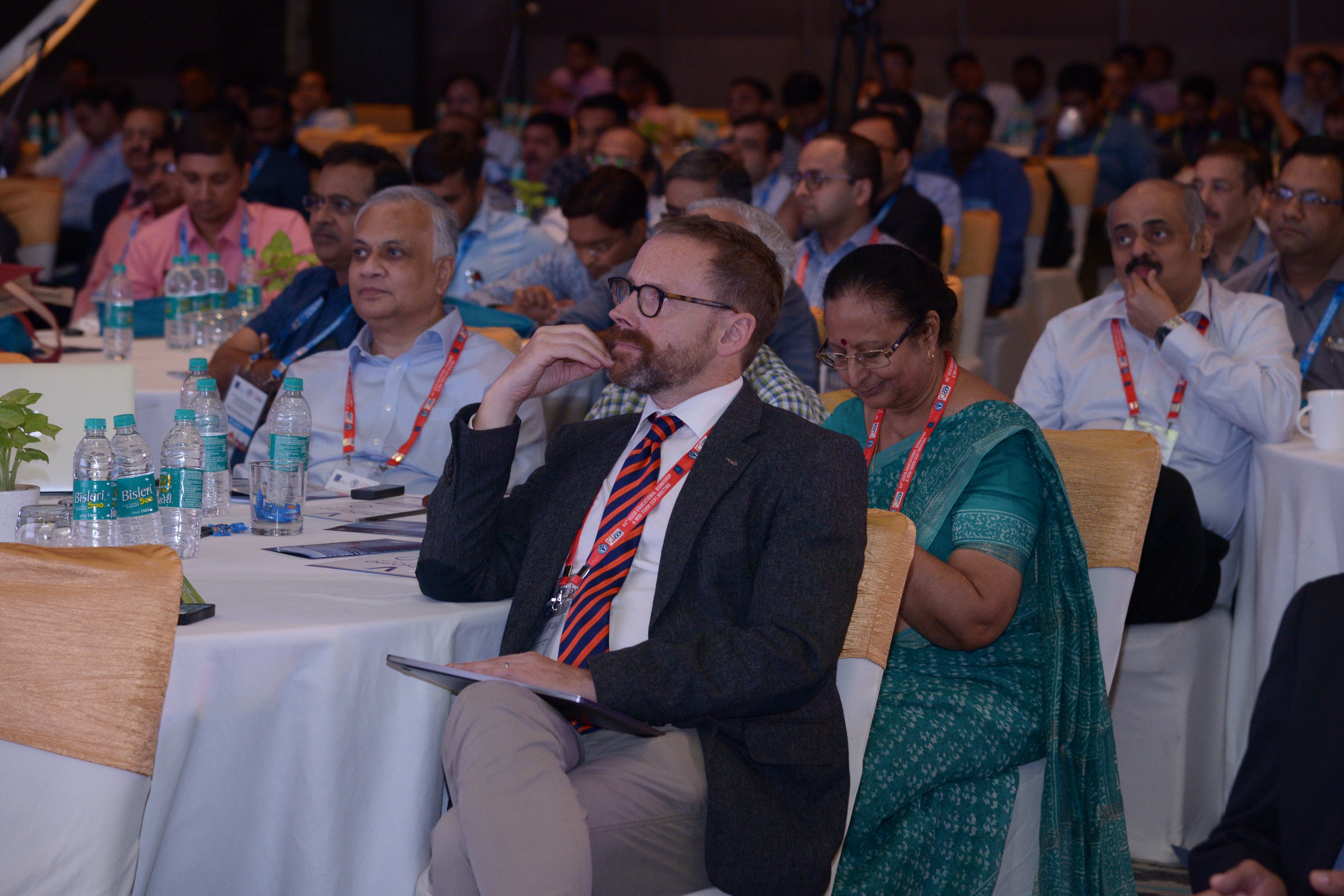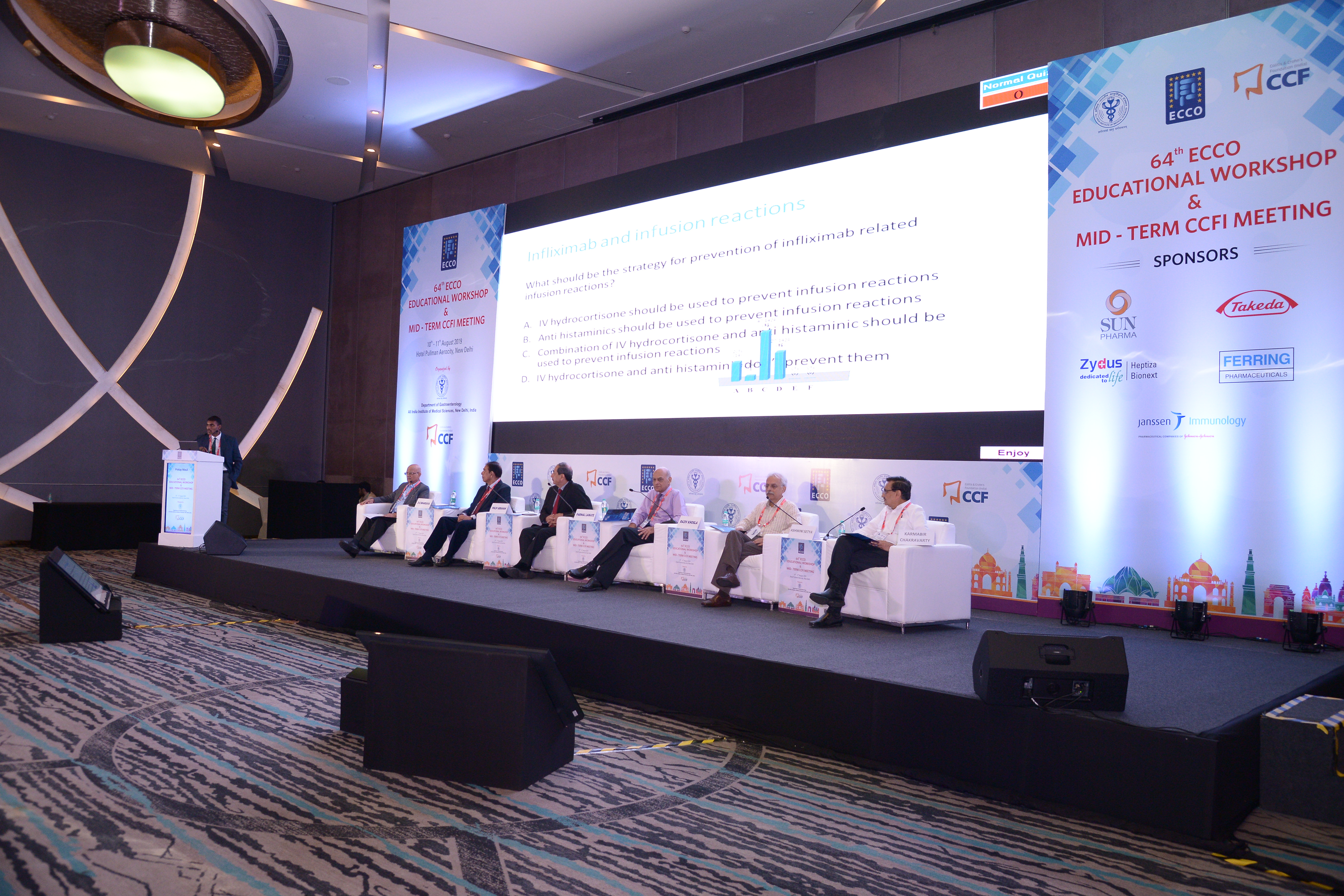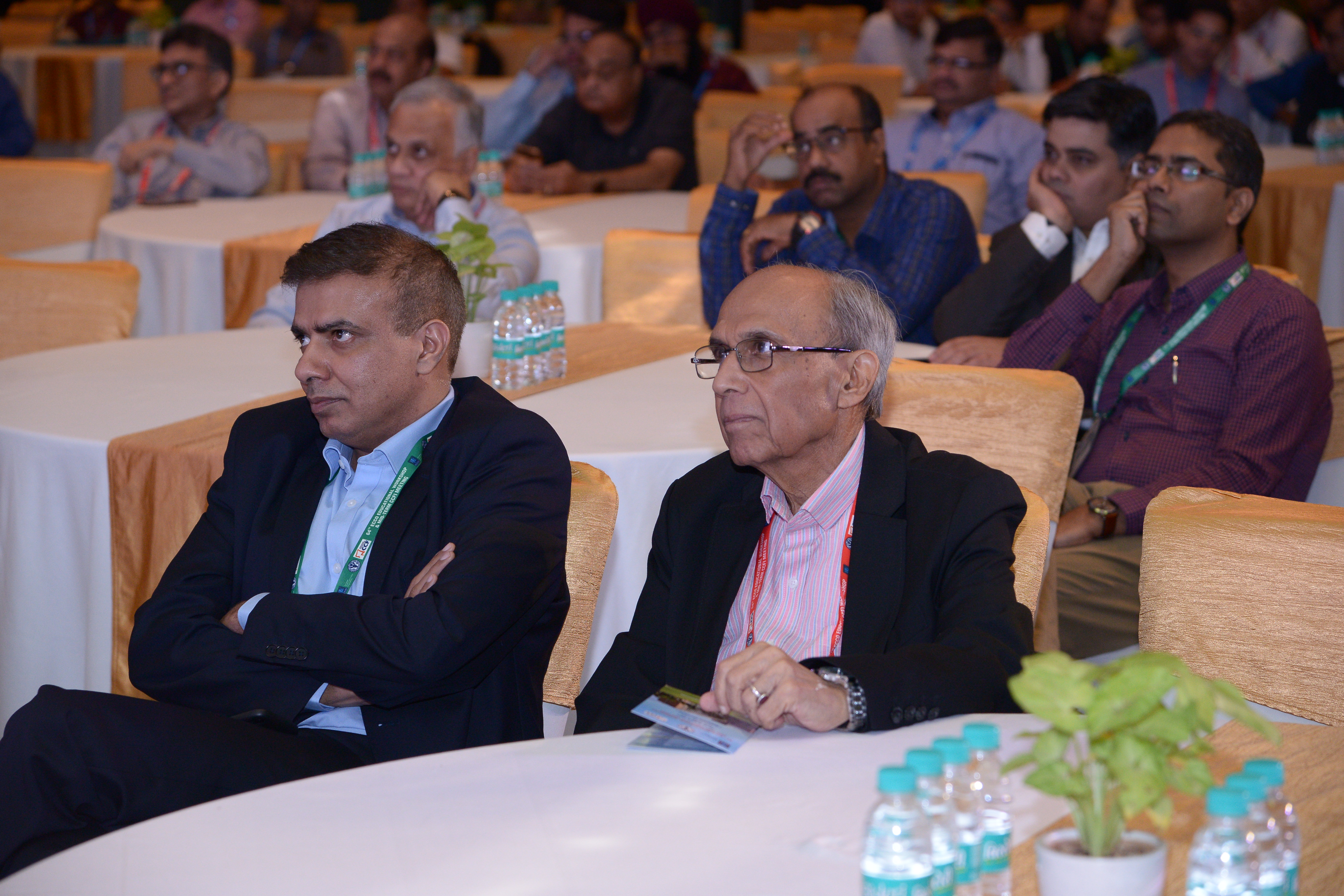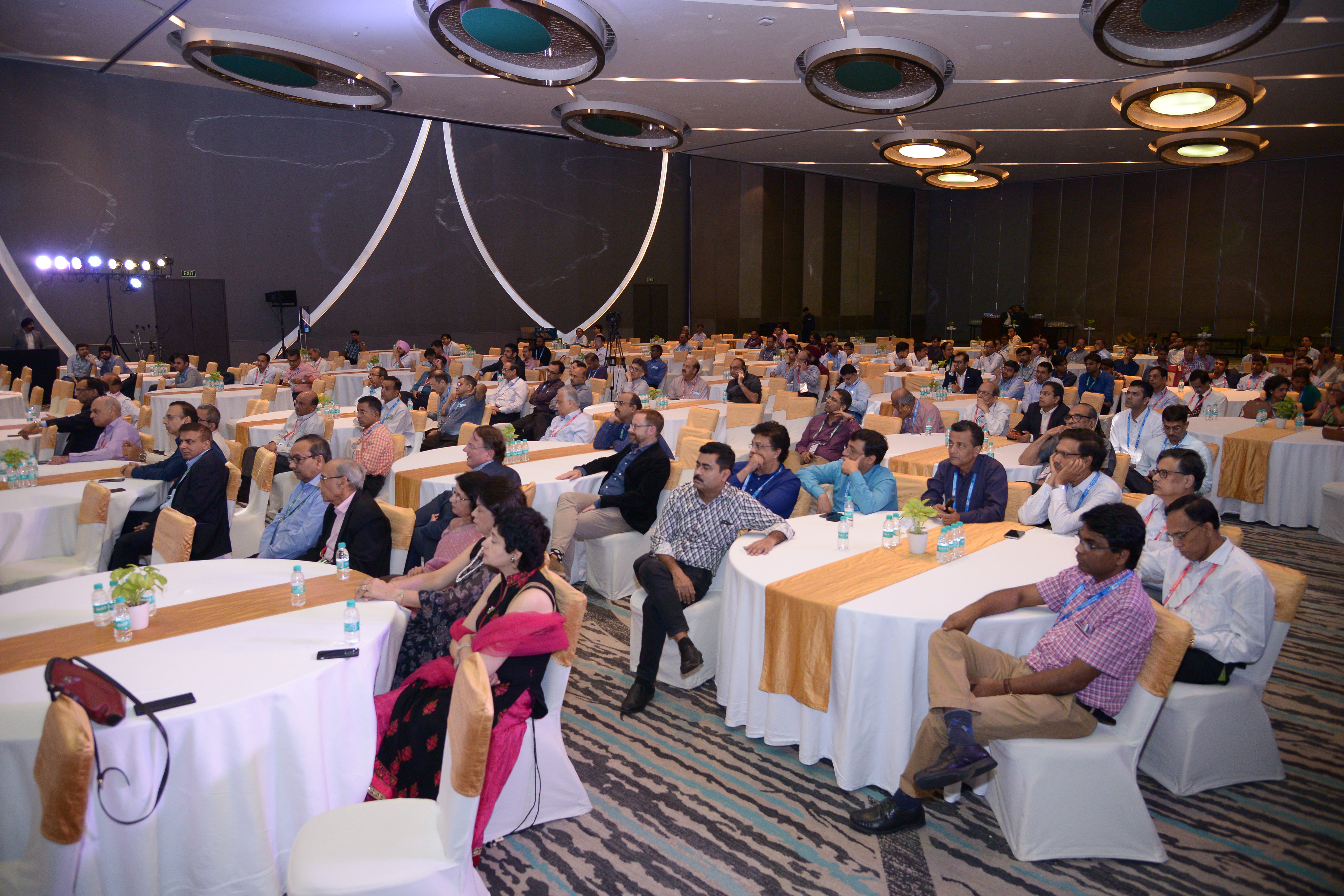Report on the 64th ECCO Educational Workshop in New Delhi, India, August 10, 2019
James Lindsay, Education Officer
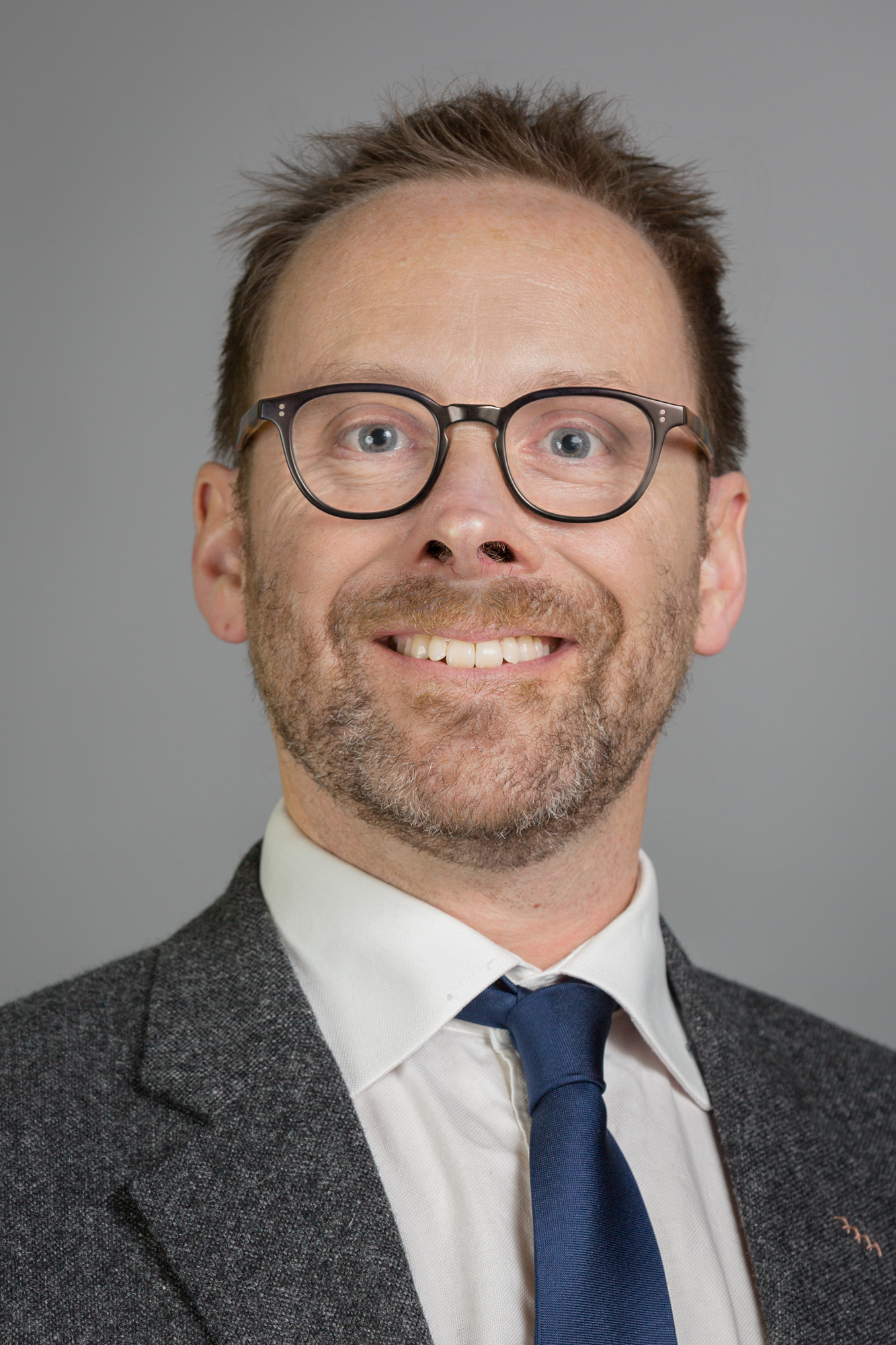 James Lindsay © ECCO |
The 64th ECCO Educational Workshop took place at the Hotel Pullman Aerocity on August 10, 2019, the day before a National IBD study day. The ECCO Faculty comprised Willem Bemelman and myself; however, we were fortunate also to be joined by Simon Travis, who was part of the faculty for the following day.
The local organiser was Vineet Ahuja, who was joined by 16 local faculty who moderated the sessions and acted as an expert panel to facilitate discussion as well as to present some of the cases. The workshop was a resounding success, with 250 participants, including a mixture of physicians, surgeons and trainees.
We modified the normal structure of the workshop to include an expert panel in order to facilitate discussion due to concern that it might be difficult to interact with such a large audience. This proved to be an unnecessary concern, as there was free-flowing debate and discussion between all members of the faculty and audience throughout. Willem and I presented several of the cases as tandem talks in the hope that we could emphasise the importance of MDT working in the management of Acute Severe Colitis, perianal Crohn’s Disease and penetrating ileocolic Crohn’s Disease.
We very much followed the recent practice of simply presenting the details of the cases and the associated ECCO Consensus Statements, having removed the remaining slides showing the trial data. This allows a much more flexible approach, increasing the time for interaction and allowing the faculty to discuss the relevant evidence when appropriate, rather than having to review it out of order as part of a formal presentation.
As ever, when visiting countries outside Europe, it was fascinating and educational to see the traditional ECCO cases discussed within the context of a different population and health care system. Clearly, the differential diagnosis is more complex in areas where TB and amoebiasis are prevalent. In this setting we were able to hear the advances in translational science arising from local work that may facilitate timely diagnosis in the future. Likewise, the discussion around therapeutic strategy benefited from the experience of the local faculty in faecal microbiota transplantation.
In addition to the workshop cases, Willem gave a thought-provoking talk on ileoanal pouch surgery which included an interesting case of chronic pouchitis. This facilitated an excellent discussion about the distinction between de novo Crohn’s Disease of the pouch and unrecognised chronic anastomotic failure. He highlighted the logic of undertaking a modified 2 stage pouch to enable early detection and treatment of early anastomotic failure.
The workshop ended with a Gala Dinner showcasing the finest of Indian food and entertainment. It is clear that there is an appetite for focussed IBD education in India and it was excellent to be able to partner up with the local faculty to deliver this workshop.
64th ECCO Educational Workshop in New Delhi © Vineet Ahuja
